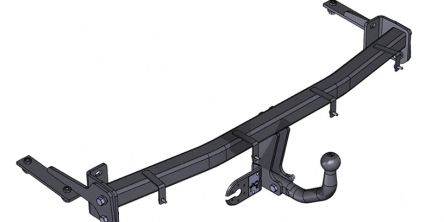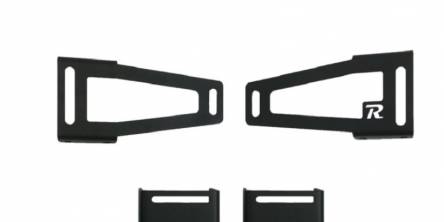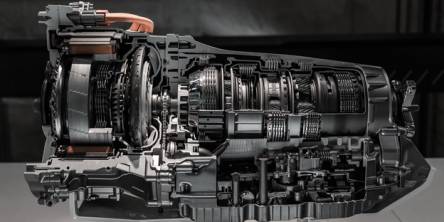10 Mistakes While Selling a Car You Should Avoid
When it comes to buying a new car, selling the current car at the highest possible price is essential. According to statistics, the car begins to depreciate immediately after purchase. In general, for every year you own a vehicle, you can expect it to lose at least 5-7 percent of its value.
On average, in five to seven years the car will cost slightly more than half of its purchase price. Regardless of whether you rent a car in trade-in or sell it yourself, there are points that you need to adhere to in order to get the maximum possible amount for your car. Indeed, if you sell your car for cash to car dealers, there is no reason to worry about ads, photos, or other things.
However, there are many mistakes when selling cars that can cost you money. You may be spending too many resources in the selling process itself or investing too much in preparing for the sale. Also, not knowing the cost of the car and how to negotiate correctly may not lead to the results you expected. In this article, we have gathered 10 mistakes while selling a car you should avoid.
1. Not knowing the price of your car
In order to correctly assess your car, you need to know its current market value. Many car sites offer tools to help you evaluate your car. The more specific information you provide to the valuation tool, the more accurate the quote will be. Evaluating your vehicle across multiple sites will give you a solid idea of what the maximum and minimum prices might be. Averaging the results should give you a fair starting point.
It is also important to study the prices of other sellers, not only of the same model and car brand as yours but also of similar options. These are cars of your class, presented by other manufacturers. This way, you will know what alternatives a potential buyer has. This is necessary in order not to overestimate your car and not to overcharge the price for no apparent reason and arguments.
2. Expensive repairs before the sale
You might think that you will get more money for your car if you do the repairs. This may turn out to be true but it is unlikely that you will get back all the money you spend on repairs. Expensive repairs usually don’t add to the value of a vehicle as much as sellers expect. This applies to both mechanical and body repairs.
Take an inventory of all the repairs your vehicle needs. Get an estimate of how much each type of repair will cost. This will be a powerful argument in negotiations. If the buyer wants you to reduce the price more than the renovation costs, then you can provide information and make a counteroffer.
Be honest about necessary repairs or problems when advertising your vehicle. Surprises will only irritate buyers, diminish confidence, and likely lengthen the time it takes you to sell your vehicle. There is no reason to waste a potential buyer’s time.
3. Lack of a pricing strategy
Setting the selling price for your vehicle is not the only step when it comes to pricing. You will have to decide in advance how quickly you need to sell the car and how much you are willing to reduce the price when bargaining. If you are not in a hurry, you can initially slightly increase the cost.
You should also have a plan for responding to customer suggestions. What if they offer less than your minimum? How will you answer? If you don’t think through this point in advance and don’t develop a clear pricing strategy, you may start to hesitate during negotiations.
4. Signing sales documents without reading them
Sometimes, even standard forms may contain inaccuracies. Everyone makes mistakes, but even a dealer may try to deliberately cheat in order to profit. Before signing any documents, you need to check them carefully. If you find errors or have any questions, ask to correct them. Make sure all mistakes are corrected before signing documents. Remember that a few extra minutes early on can save you money and hassle.
5. Last-minute price changes
Dealers usually have a condition that allows them to play it safe when evaluating your vehicle. Essentially, they can revalue it again before the deal is completed. Some dealers may try to use this condition to change the final deal in their favor. They could evaluate your car, keep you busy with a new car dealership to buy a new car, and prepare the paperwork for shipment. Then, when it comes time to sign the paperwork, they underestimate your old car.
Since they know that you are excited about your purchase and are ready to accept delivery, they figure that you may not be too resistant. In this case, you shouldn’t concede. Ask the dealer to leave the originally quoted price for the car. If they don’t budge, then it’s better to just abandon the deal.
6. Skipping a car wash before selling
The look of your car is important. A car that is clean outside and inside looks better. It looks better in photos and a potential buyer realizes that the car has been well-groomed. A well-maintained car is usually easier to sell.
In addition to washing the car, remove excess personal items from the interior and vacuum it. It would also be helpful to clean the windows and tires. Your car should also be clean when shown to the site manager if you rent the car for sale to third parties. Another advantage of cleaning your car is that you can spend a little more money on it but you will give the impression that the car has been well looked after.
7. Advertising with incomplete or inaccurate information
If you fail to provide all the important details in your ad or if you provide false or inaccurate information, you are wasting potential buyers' time as well as your own. It is important to describe the condition of the car in as much detail as possible so that there are no surprises. Surprises usually lead to trade failures. Each ad must contain basic information such as year of manufacture, make, model, appearance, mileage, and characteristics.
More detailed descriptions such as recent maintenance, oil change, tire change, mileage on tires since they were replaced are also useful. If there are obvious problems with the car, don’t hide them. It is worth remembering that any potential buyer can request a car diagnosis before buying and then everything hidden will become a reality. You shouldn't come up with false stories about your car. Now there are many online services and the buyer can find out the truth by checking the vehicle.
8. Advertising with bad photos.
Cars with high-quality photos in ads get more attention. Good photos make the car stand out. In addition, buyers will have a clear idea of what your car is and will want to see it. This doesn’t mean that you need to hire a professional photographer or use a special camera. Your smartphone is enough for you to take good pictures.
Make sure you are photographing the car in good lighting and without distracting backgrounds. Take photos of the interior and exterior from different angles, trying to focus on all the important details. Pay special attention to the bodywork, driver's seat, and engine compartment.
9. Loss of maintenance records
Maintenance records, certificates of completion, purchase receipts for spare parts, battery warranty cards, and similar documents should be kept. Having such records will give the buyer additional confidence in your integrity. It is also the best way to prove that the car has been well looked after. If you give the buyer all the documents related to the vehicle, it will be a big plus.
10. Hiding information about road accidents
If your vehicle has been involved in an accident, tell it to a potential buyer or dealer. As mentioned above, they can find this information in the vehicle history report. Additionally, the buyer's mechanic, dealership specialist, or auto expert can immediately notice previous repairs during a preliminary inspection before buying.
Similar Articles
When it comes to heavy towing, you must ensure that you use the right equipment for the job. Your choice of a pickup truck, trailer, and hitch is vital to ensuring safe and proper towing.
If you are an owner of a vehicle, then you must need to know somethings about it. Let's go...
Jeep is one of the most iconic car brands out there. From the Wrangler to the Cherokee to the recently revitalized Wagoneer, Jeep has a deep lineup of desirable automobiles
Almost every industry relies on data to make the most crucial business decisions. Fleet managers, too, are placing enormous focus on several vital technological mainstays within their operations.
A Toyota 4Runner Roof Rack is an excellent addition to your vehicle. Here we look at answers to some commonly asked questions about roof racks in general.
The ingenious of the human race keeps inventing new ways of making life easier and more sustainable. As such, the world has had many innovations – from telecommunication, food production, health to each part of human existence.
The card dealers tend to use various strategies to attract more customers. Their marketing tactics may vary from flashy commercials on TV and YouTube to various print ads and signage at different locations. All the advertising modes are great for gaining better exposure, but these come at a high cost.
Getting into a car accident isn’t something anyone expects, or plans, to happen. But that being said, it still does happen and, no matter who’s fault the crash was, you should be prepared for handling the aftermath.
Whether you've purchased a vehicle at auction or are in the midst of a cross country move, auto shipping proves a godsend. It saves on gas, lodging, food, and other expenses related to driving the vehicle yourself.









